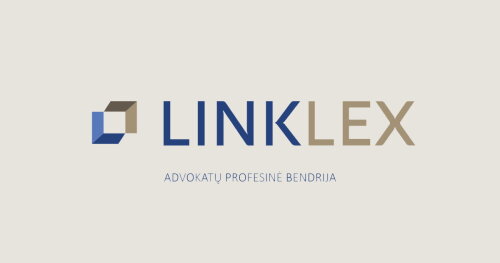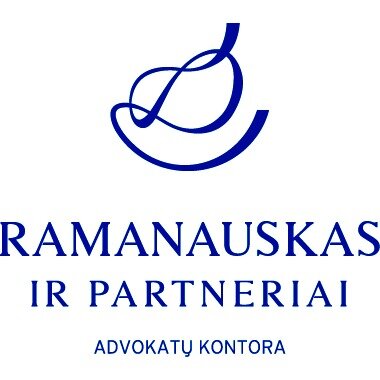Best Corporate Governance Lawyers in Republic of Lithuania
Share your needs with us, get contacted by law firms.
Free. Takes 2 min.
Or refine your search by selecting a city:
List of the best lawyers in Republic of Lithuania
About Corporate Governance Law in Republic of Lithuania
Corporate governance in the Republic of Lithuania refers to the set of legal, regulatory, and practical frameworks governing how companies are directed and controlled. The Lithuanian corporate governance system emphasizes transparent management structures, protection of shareholder rights, and accountability of company executives. Corporate governance principles are applicable to all types of corporate entities, with specific rules for listed companies, state-owned enterprises, and other organizations. These frameworks are designed to ensure ethical business conduct, reduce risks of corporate malfeasance, and attract local and foreign investment.
Why You May Need a Lawyer
Seeking legal advice in the field of corporate governance is crucial in many situations. Common scenarios include the incorporation and restructuring of companies, resolving shareholder disputes, drafting and reviewing governance documents such as articles of association or shareholder agreements, and ensuring compliance with regulatory requirements. Lawyers also assist in navigating changes in board composition, addressing issues related to conflicts of interest, and representing parties in investigations or court proceedings. In cross-border transactions or mergers and acquisitions, expert legal advice helps companies adhere to both Lithuanian and international standards, mitigating legal or financial risks.
Local Laws Overview
The main legislative act governing corporate governance in Lithuania is the Law on Companies of the Republic of Lithuania. Additional regulations include the Law on Securities, Law on the Markets in Financial Instruments, and various guidelines adopted by regulatory authorities such as the Bank of Lithuania. These laws establish requirements for the management bodies of companies, duties and liabilities of directors and board members, transparency obligations, and the protection of minority shareholders. For listed companies, the Corporate Governance Code for Companies Listed on NASDAQ Vilnius sets higher standards of governance and disclosure. State-owned enterprises are further regulated by the Lithuanian Government’s Good Governance Guidelines.
Some of the key principles embedded in Lithuanian law include: - Clear division of roles between the general meeting of shareholders, the supervisory board, and the management board - Mandatory disclosure of material information that may impact investor decisions - Requirements for independent members on boards, especially in listed entities - Strict rules to manage conflicts of interest - Enhanced protections for minority shareholders, including remedies for unfair prejudice.
Frequently Asked Questions
What is corporate governance in Lithuania?
Corporate governance in Lithuania encompasses the legal and practical rules overseeing how companies are directed, how decisions are made, and how accountability is ensured among major stakeholders, including shareholders, directors, and managers.
Which legal acts regulate corporate governance in Lithuania?
The primary legal acts are the Law on Companies, the Law on Securities, and additional regulations issued by regulatory bodies such as the Bank of Lithuania and the Ministry of Economy and Innovation.
What bodies govern a Lithuanian company?
A typical Lithuanian company is governed by the general meeting of shareholders, the board (management or supervisory), and in some cases, a board of directors. Listed companies and certain large companies may also be required to have independent board members.
Are there specific requirements for listed companies?
Yes. Listed companies must comply with the Corporate Governance Code for NASDAQ Vilnius-listed companies, which includes more stringent rules on transparency, director independence, and disclosure to investors.
How are conflicts of interest managed?
Lithuanian law requires board members and managers to avoid conflicts of interest. They must disclose any personal interest in company transactions and may be prohibited from voting on matters where such conflicts arise.
What rights do minority shareholders have?
Minority shareholders in Lithuania benefit from legal protections such as the right to request information, call general meetings, propose agenda items, and challenge decisions that are prejudicial or contrary to law.
Is there a requirement for gender diversity on boards?
Currently, there is no statutory quota for gender diversity on boards. However, guidelines and recommendations encourage companies to balance gender representation, especially in state-owned enterprises.
How often must company meetings occur?
Annual general meetings of shareholders are mandatory. Extraordinary meetings may be held as needed or as required by shareholders or the board.
What happens if a company breaches corporate governance laws?
Companies or their officers may face administrative or civil sanctions, including fines, invalidation of unlawful decisions, and possible removal of directors or managers for serious breaches.
Why is transparency important in corporate governance?
Transparency builds trust among shareholders and stakeholders, helps prevent misconduct, and is critical for compliance with both local and international regulations. Lithuanian law mandates timely and comprehensive disclosure of material events and financial information.
Additional Resources
For those seeking further guidance or information, the following resources may be helpful:
- Bank of Lithuania - Supervisory authority for financial market participants
- Ministry of Economy and Innovation - Regulates corporate structure and governance for businesses
- Centre of Registers - Registers companies and their governing documents
- Association of Corporate Lawyers of Lithuania - Professional network and advisory body
- Vilnius Chamber of Commerce, Industry and Crafts - Provides educational seminars and publications
Next Steps
If you need help with a corporate governance matter in Lithuania, consider the following actions:
- Gather and review any relevant company documents, including articles of association, board meeting minutes, and shareholder records
- Identify the specific issue or question requiring legal advice
- Consult a qualified corporate lawyer licensed in Lithuania who has expertise in governance matters
- Request a written assessment of your situation, including identification of risks and recommended legal actions
- If a regulatory body is involved, ensure all filings and disclosures are up to date and in accordance with Lithuanian law
You may also contact local business associations or regulatory agencies for preliminary information. Remember, early legal advice can prevent costly disputes and help ensure your company’s governance aligns with both Lithuanian and international best practices.
Lawzana helps you find the best lawyers and law firms in Republic of Lithuania through a curated and pre-screened list of qualified legal professionals. Our platform offers rankings and detailed profiles of attorneys and law firms, allowing you to compare based on practice areas, including Corporate Governance, experience, and client feedback.
Each profile includes a description of the firm's areas of practice, client reviews, team members and partners, year of establishment, spoken languages, office locations, contact information, social media presence, and any published articles or resources. Most firms on our platform speak English and are experienced in both local and international legal matters.
Get a quote from top-rated law firms in Republic of Lithuania — quickly, securely, and without unnecessary hassle.
Disclaimer:
The information provided on this page is for general informational purposes only and does not constitute legal advice. While we strive to ensure the accuracy and relevance of the content, legal information may change over time, and interpretations of the law can vary. You should always consult with a qualified legal professional for advice specific to your situation.
We disclaim all liability for actions taken or not taken based on the content of this page. If you believe any information is incorrect or outdated, please contact us, and we will review and update it where appropriate.
Browse corporate governance law firms by city in Republic of Lithuania
Refine your search by selecting a city.














